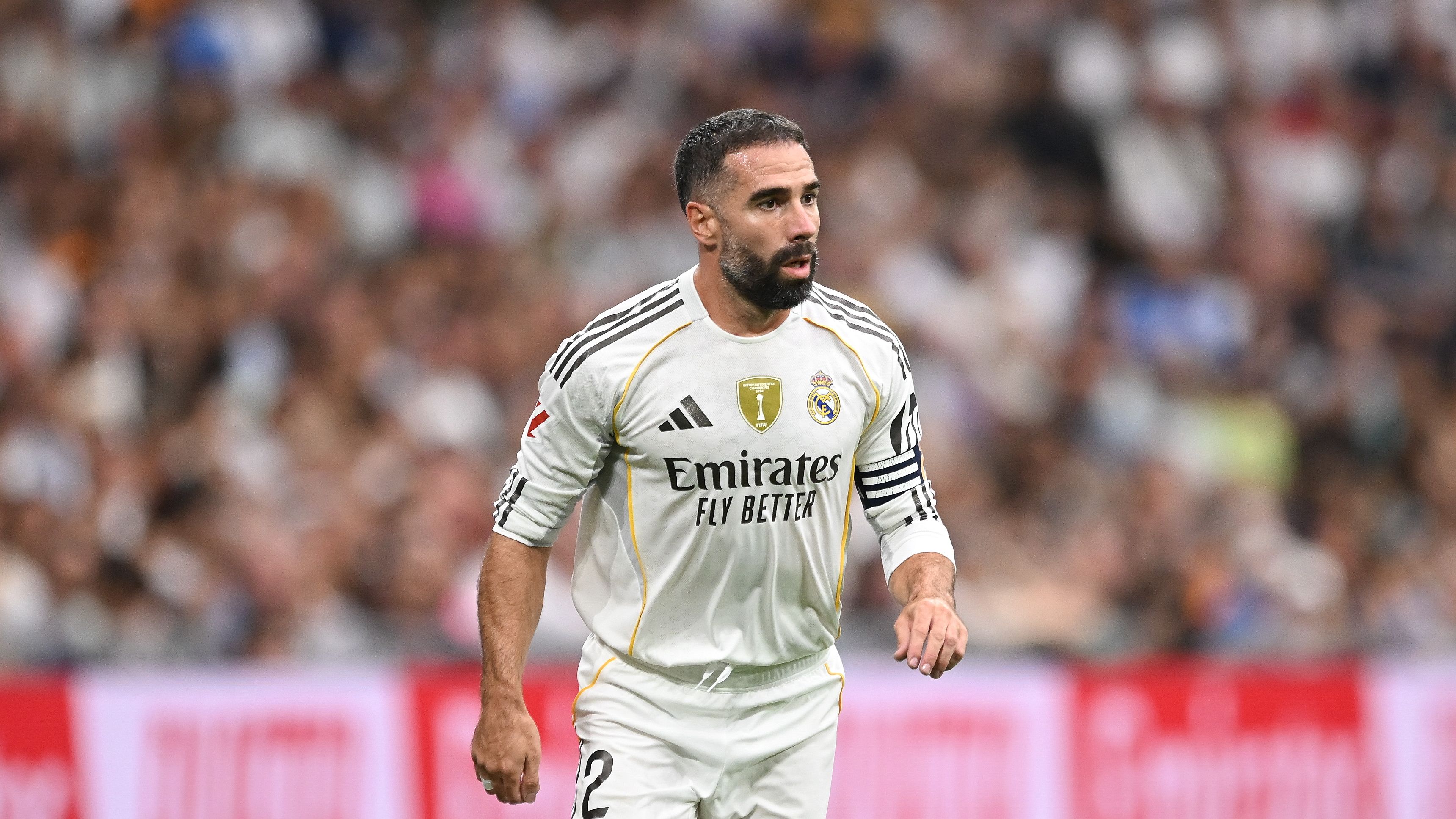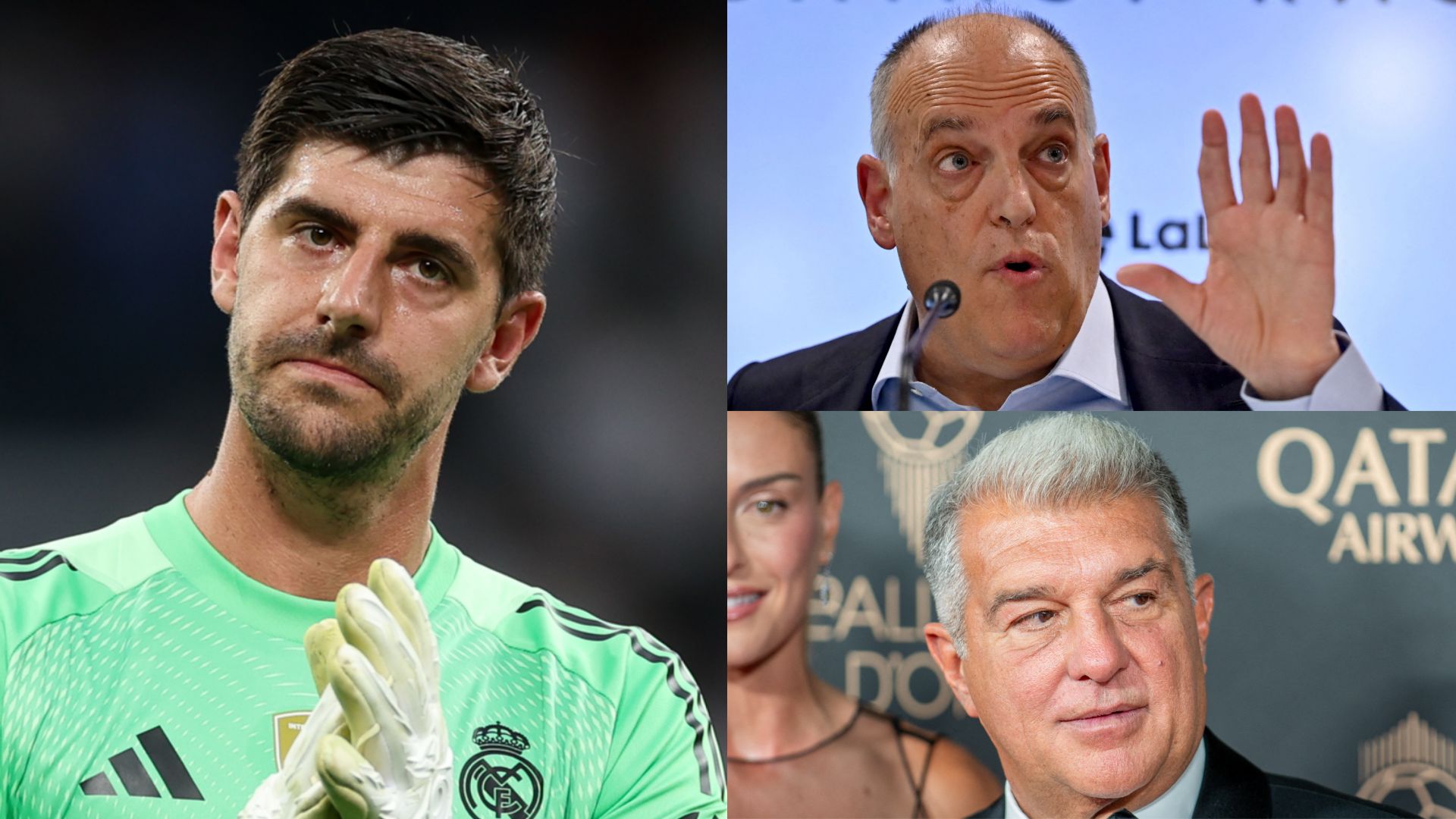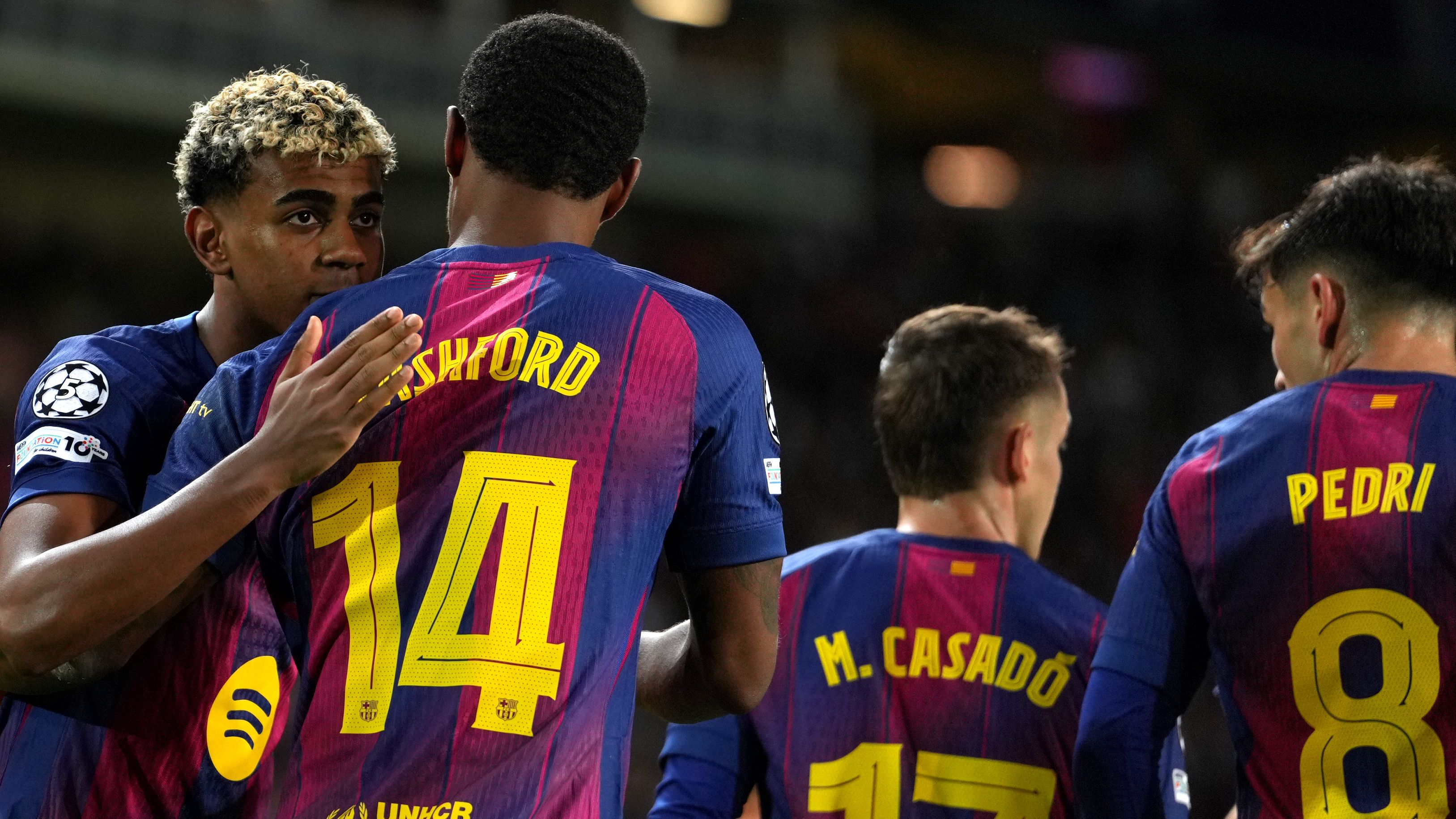


Unveiling the Heated Backlash Against La Liga’s Abandoned Miami Venture
In a bold stand against potential unfairness in Spanish football, Dani Carvajal, the esteemed captain of Madrid, has fiercely condemned La Liga’s defunct proposal to stage the Villarreal versus Barcelona clash in Miami. This initiative, which aimed to break new ground by hosting an official match abroad, ultimately fell apart amid widespread objections from athletes, coaches, and supporters, highlighting ongoing debates over La Liga‘s commitment to equitable play and global expansion.
Dani Carvajal’s Outcry Over La Liga’s Miami Match Scheme
The Madrid stalwart, in his remarks to Teledeporte, labeled the concept as a blatant skewing of the league’s structure, insisting that relocating key fixtures overseas erodes the bedrock of impartiality in competition. Carvajal emphasized the need for uniformity among all participants, arguing that such moves fail to uphold the values of equity that players, teams, and the organization itself must champion.
Direct Quotes Reflecting Concerns on Competitive Equality
“This represents an obvious skew in the competition, preventing every La Liga side from operating under identical circumstances,” Carvajal explained. “It’s crucial for us-players, clubs, and the league-to prioritize justice, and frankly, this approach doesn’t align with that goal.” This perspective underscores the broader worries about maintaining a level playing field in professional football.
The Road to Cancellation: Rising Opposition from the Football Community
Originally set for December 20 at Miami’s Hard Rock Stadium, this would have marked a historic first for La Liga by venturing beyond Spain’s borders. Yet, escalating pushback from various stakeholders forced a reversal earlier this week, shifting the event back to its intended location.
Leading Protests by the Spanish Footballers’ Association
At the forefront of the resistance, the Spanish Footballers’ Association (AFE) demanded greater openness, discussion, and consistency from La Liga’s leadership. In a show of solidarity, athletes from all 20 elite clubs began their games with a 15-second halt over the weekend, signaling their unified discontent and highlighting issues of fairness in the sport.
Emphasis on Uniform Player Conditions
In their formal release, AFE stressed the importance of standard working environments for players in every game, pointing out potential drawbacks from international trips, such as environmental factors and timetable conflicts. The declaration reinforced that “player conditions should remain uniform across all fixtures,” emphasizing risks to competitive balance and overall athlete welfare.
Real Madrid’s Vocal Resistance and Beyond
Within Real Madrid’s ranks, opposition was particularly pronounced, with goalkeeper Thibaut Courtois echoing Carvajal’s sentiments during a media session. He described the plan as a direct violation of competitive norms, noting that it served self-interested motives rather than adhering to established player agreements, where matches should typically occur at home or away venues, except in extraordinary situations.
A United Front Across Spanish Football
This dissent wasn’t limited to one club; it spread throughout Spain, with players, teams, and followers rallying against what they saw as a profit-driven strategy that overlooked the essence of the game. Numerous captains, including Espanyol’s Leandro Cabrera, called out La Liga for favoring revenue over principles, questioning in an interview with Cadena SER: “We simply seek honesty, courtesy, and reasonability. If it’s all above board, let’s discuss it openly before moving forward with sales.”
Reluctance from Barcelona’s Camp
Barcelona’s head coach Hansi Flick and his squad expressed clear unease about the added travel burdens during an already packed schedule. Flick shared in his pre-game briefing, “Neither my team nor I are in favor, yet La Liga imposed this decision.” Likewise, midfielder Frenkie de Jong highlighted the strain of excessive fixtures, noting that athletes are already stretched thin with their obligations.
Intensifying Pressure on La Liga Leadership
The wave of frustration, amplified by public demonstrations, put considerable strain on La Liga president Javier Tebas, who had positioned the idea as essential for boosting the league’s worldwide presence and financial growth.
UEFA’s Stance and the Path to Reversal
Although UEFA initially granted special permission for the event, the uproar made it unsustainable. UEFA’s leader, Aleksander Ceferin, clarified that this approval wasn’t a template for future actions, even as La Liga tried to mirror approaches seen in leagues like Serie A. In the end, La Liga withdrew the Miami arrangement, blaming recent uncertainties in Spain and expressing disappointment over losing a chance for broader international exposure, while maintaining that it met all guidelines without compromising the game’s fairness.
Statements from Involved Parties
Partner organization Relevent Sports, working alongside Miami Dolphins owner Stephen Ross, attributed the delay to practical issues and scheduling hurdles. Consequently, the Villarreal versus Barcelona encounter will proceed at its original site, Estadio de la Ceramica, preserving the domestic rhythm of the season.
Implications for La Liga’s Global Aspirations
The failure of this overseas initiative has cast significant uncertainty over La Liga’s plans to regularly host games abroad, with President Tebas envisioning a model similar to the widespread appeal of the Premier League and NFL to enhance global engagement.
Potential for Heightened Opposition Ahead
Nevertheless, the strong negative response from athletes, associations, and the public indicates that future attempts might encounter even greater hurdles. Attention now returns to local matches, as Barcelona gears up for their intense El Clasico showdown against Madrid, led by Carvajal, while Villarreal prepares to take on Valencia, redirecting the spotlight to the core of the competition.
The Backstory of La Liga’s Cancelled Miami Match
When it comes to La Liga controversies, the proposed Miami match stands out as a major flashpoint in the world of football. This event, which sparked widespread protests from players and unions, highlighted ongoing debates about the commercialization of the sport and its potential “distortion of the competition.” Dani Carvajal, the Real Madrid defender known for his outspoken nature, wasn’t alone in his criticism, joining a chorus of voices that argued the plan undermined the integrity of La Liga fixtures.
What Led to the Protests?
The idea of hosting a La Liga match in Miami gained traction as part of efforts to expand the league’s global reach, but it quickly faced backlash. Players and fans alike viewed it as a risky move that could prioritize profits over tradition. Protests erupted from various quarters, including the Spanish players’ union, which raised concerns about travel fatigue, fairness in scheduling, and the essence of what makes La Liga competitions authentic.
- Key grievances from protesters: Many argued that playing a match outside Spain would create an uneven playing field, potentially affecting team performance due to time zone changes and long-distance travel. This wasn’t just about logistics; it touched on deeper issues like maintaining the competitive spirit that fans love about La Liga matches.
- The role of fan and union involvement: Groups like the Association of Spanish Footballers (AFE) mobilized quickly, organizing demonstrations that emphasized how such decisions could distort competition by favoring financial interests over athletic fairness. These protests were instrumental in pressuring La Liga officials to reconsider.
Dani Carvajal’s Stance on the Issue
Dani Carvajal, a stalwart in La Liga defenses and a key figure for Real Madrid, didn’t hold back when condemning the cancelled Miami match. His comments echoed the sentiments of many players who felt this proposal was a step too far in commercializing football protests.
Why Carvajal Spoke Out
Carvajal’s remarks centered on the idea that moving a La Liga match to Miami would fundamentally alter the competition’s structure. In interviews, he described it as a “distortion of the competition,” pointing out how it could disadvantage teams and disrupt the regular season flow. This stance resonated with football enthusiasts who follow La Liga closely, as it reinforced the need for matches to remain on home soil.
- Direct quotes and insights: Carvajal stated that the plan “goes against the spirit of what we’ve built in La Liga,” highlighting risks like player fatigue during a packed schedule. His words served as a rallying point for other athletes, showing how La Liga controversies can unite players across teams.
- His influence in the football community: As a multiple Champions League winner, Carvajal’s criticism carried weight, especially among younger fans and aspiring players who look to him for leadership. This episode also brought attention to broader La Liga issues, such as balancing global expansion with competitive integrity.
The Players’ Collective Condemnation
The cancelled Miami match wasn’t just Carvajal’s fight; it represented a broader wave of player discontent. Several high-profile athletes from various La Liga teams joined in, turning this into a collective stand against what they saw as an overreach by league organizers.
Other Players Involved in the Protests
Fellow players like Sergio Ramos and players from Barcelona and Athletic Bilbao added their voices, creating a united front against the proposal. This solidarity was crucial in amplifying the message that football protests aren’t isolated incidents but symptoms of deeper systemic concerns.
- Notable reactions from key figures: Ramos, for instance, echoed Carvajal’s views by calling it a “threat to fair play,” while Barcelona’s squad members emphasized how it could affect La Liga standings and team strategies. These responses helped frame the debate around maintaining the competition’s purity.
- How this affected team dynamics: In bullet form, here’s how the protests influenced the football landscape:
- Increased awareness of player rights: The incident led to discussions on protecting athletes from exploitative scheduling, a common theme in modern La Liga controversies.
- Potential long-term changes: It prompted talks about revising La Liga rules to prevent similar situations, ensuring that future matches prioritize competitive balance.
- Fan engagement and support: Supporters rallied online and at stadiums, using hashtags like #SaveLaLigaIntegrity to show solidarity, which in turn boosted visibility for these football protests.
The Wider Impact on La Liga and Global Football
Beyond the immediate fallout, the cancelled Miami match raised questions about the future of La Liga competitions in an era of globalization. This event underscored how decisions driven by commercial interests can lead to unintended consequences, like alienating fans and players.
Why This Matters for Football Fans
For those passionate about La Liga, this controversy highlighted the tension between tradition and innovation. Players like Carvajal pointed out that while international exposure is valuable, it shouldn’t come at the expense of the sport’s core principles.
- Lessons learned from the cancellation: One positive outcome was the emphasis on player welfare, with unions pushing for better regulations around international La Liga matches. This could lead to more balanced scheduling in future seasons.
- Evolving trends in football protests: As La Liga continues to navigate global challenges, events like this serve as reminders of the need for transparent decision-making. Fans can expect ongoing debates about how to expand the league without distorting competition.
Detailed Analysis of Competition Distortion
Delving deeper, the “distortion of the competition” phrase used by Carvajal refers to potential imbalances in La Liga fixtures. For example, teams playing in Miami might face jet lag, affecting their performance in subsequent games, which could skew league outcomes.
- Specific examples of risks: Historical parallels in other leagues, like the Premier League’s international friendlies, show how travel can lead to injuries and inconsistent play. In La Liga’s case, this could mean unfair advantages for teams with deeper rosters.
- H4: Statistical insights: Data from past seasons indicates that teams with heavy travel schedules often see a dip in performance, with win rates dropping by up to 15% in the following matches-making Carvajal’s concerns all too real.
This episode in La Liga’s history serves as a cautionary tale, reminding everyone involved in football that the heart of the game lies in its fairness and tradition. With players like Carvajal leading the charge, the conversation around these issues is far from over, keeping La Liga fans engaged and informed.









